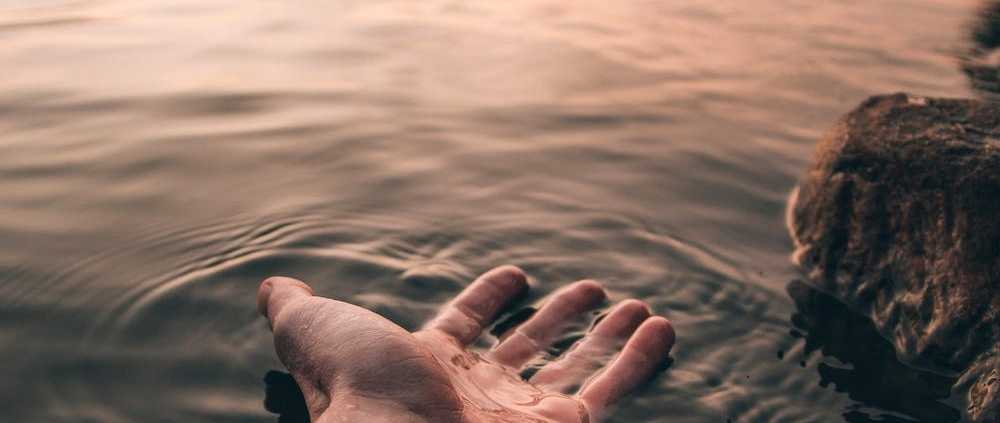Interesting facts about water supply
Drinking water Directly from the line is a matter of course in Austria. We use it for drinking, cooking and washing without really worrying about it. A water connection is mandatory in buildings with common rooms. In domestic agriculture and industry, too, water is an irreplaceable resource. It is obtained almost exclusively from groundwater and spring water, which is rare in international comparison. Many countries in Europe have to resort to the treatment of surface or even sea water.
Austria is a water-rich country. Domestic households do not even use one percent of the available water. Regardless of whether it is publicly or privately supplied, everyone can find their connection. The water supply network in our country could go around the equator almost twice – 77,300 kilometers supply Austria with drinking water.
Around 90 percent of the population get their water centrally from one of the 5,500 water supply companies. These companies must ensure that water is always available in sufficient quantities, with sufficient pressure and of perfect quality. They get the water from springs, for example, store it and distribute it to the consumers. The rest of the time they use water from their own well. In principle, the landowner has the right to use the groundwater. Of course, this involves a lot of effort, and the ongoing monitoring of water quality is particularly important.
Different ways of water supply for different needs
When building a house, sooner or later you will deal with the water supply. There are a few options depending on where you live. Information is available from the district administration or the magistrate. The water supply is part of the respective state legislation. So there are certain differences within Austria. In Lower Austria, for example, there is a compulsory connection to the public water supply, and certain criteria must be met for domestic wells.
Anyone who would like to connect their property to the water network should contact the municipality. If there is a public water pipe nearby, the connection can be requested. The regulations stipulate that, for a fee, the municipality provides the water supply up to the property line. The owner himself takes care of the line up to the house. The advantage is that in this case the costs can be clearly calculated. In very sparsely populated areas, however, the public water supply is sometimes expensive – long connection lines or pressure increase systems in higher areas increase the costs.
The alternative to this is a home well. Often there is already a well on the property, some even build one themselves. As a rule, wells are built where the public water pipe is too far away. The district administration or the magistrate can provide information on the legal regulations relating to well construction. In some cases, a permit under water law is necessary, for example if there is a separate apartment in the house and a third party is also supplied. By the way, a protected area can be applied for around the well or the spring. So the water quality can be preserved.
Another option is to use a domestic water well. The water can be used for watering flowers or washing cars, and it can also be used to flush toilets. The water quality does not have to be checked here. The water from the custom well must never come into contact with the drinking water pipe, there are no other requirements. Since the service water is usually used cold, no bacteria or germs can spread. Many also like to use rainwater for watering in the garden, which is collected in a barrel or cistern. There are also systems that make it possible to use rainwater for flushing toilets or washing machines. Rainwater has zero degrees of water hardness. With such an installation, limescale deposits can be avoided.
The water cooperative – it’s easier together
A remote settlement, dependent on its own house well, but the water quality has not been right for a long time. In such situations it makes sense to found a water cooperative. The aim of the cooperative is to create the central water supply for an area. It is organized together, the costs are shared. As a rule, there are good grants for such projects, the members tackle together and thus keep the individual costs low. Cooperatives are also ideal for projects such as water regulation or wastewater disposal.
Saving water does not relieve the supply systems
We usually become aware of the importance of cool water when it is missing. If, for example, no water flows out of our tap for a few hours because of important repairs, this is quite a limitation. Lately there have been increasing reports of water scarcity, forest fires and crop failures. Southern Europe in particular suffers in summer. However, saving water is not necessarily the right course of action. Car washing and full baths should only be avoided if the water supplier advises this. If not enough sewage flows through our pipes, they clog and start to stink. The only solution: to pump large amounts of drinking water through the pipes to clean them. The economy mode therefore leads to far greater water consumption. In nature, the raw material is in a cycle anyway. In contrast to resources such as oil or gas, the water on earth cannot be used up.
The Austrian water suppliers know how to deal with dry periods. The water supply is guaranteed even in particularly hot summers. Small, local failures could occur if the entire settlement decides at the same time to fill their swimming pools in the garden.



